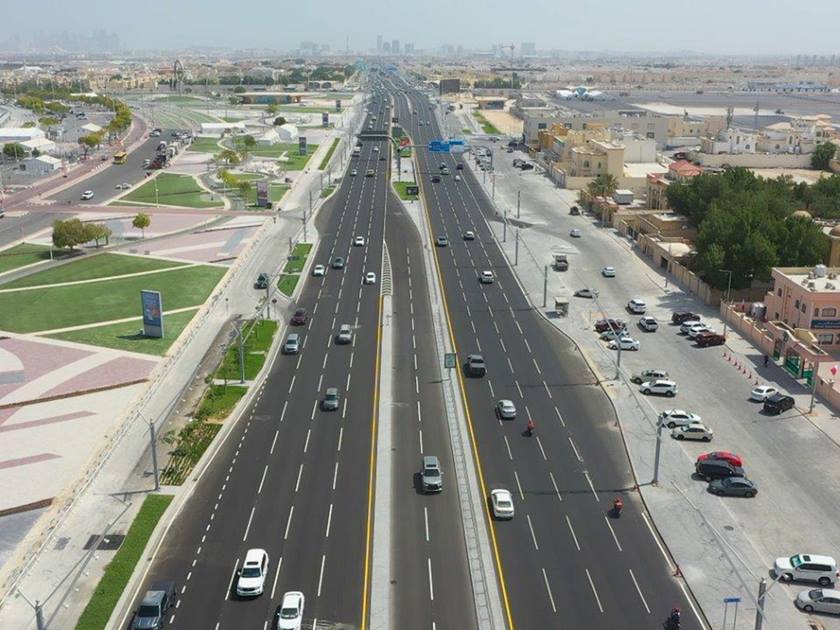
With translation from Heba Fahmy
In an effort to streamline Qatar’s visa system for expats, the Ministry of Interior today announced a series of measures that puts more emphasis on identity cards while minimizing the use of passports for identification.
Officials said that beginning June 15, new residents and those renewing their residency permits (RPs) would no longer need to have stickers in their passports explaining their visa details.

Instead, residents will be given new ID cards, which will have more information on them than the existing ones – including an individual’s home address.
For the first time, children under the age of 16 years old will also be issued ID cards.
In a press conference this morning, the MOI’s Asst. Director General of Passports and Expat Affairs, Brig. Mohamed Ahmed Al Ateeq, said that the new card would become the only official document that proves identity and residence of expat residents in Qatar.
That means travelers would need to produce their ID as well as their passports when entering and leaving Qatar.
In a statement, officials added:
“An expat resident in Qatar should keep his residence card always with him and show it to concerned authorities whenever asked to do so because it is the only card to prove his identity and residence permit at the same time.”
How and when to apply
Under the new system, residents applying for work visas from the government or their company must do so electronically through mobile app Metrash 2, the MOI’s website or the e-government website. The cards will be sent out through the mail.

The renewal application for family and personal sponsorships can either be done online or in person.
The new card can be renewed for one, two, three or five years, depending on the category of visa applied for, officials said.
Capt. Abdulla Khalifa Al-Muhannadi said there will be two types of cards available – the normal card and a smart ID card, which came into effect in 2011 and are issued when people apply for e-gate cards for fast-track immigration at Hamad International Airport.
The existing smart ID cards feature biometric data such as fingerprints and eye scans on an embedded electronic chip used to verify the cardholder’s identity.
Existing residents with valid RPs do not need to show their passports to apply for the new card, but new applicants will be required to do so. Fee for the cards remain unchanged.
‘Ease procedures’
The new card system will ideally help the ministry in its bid to become paperless, and to speed up the process of obtaining visas, officials said today:
Capt. Al-Muhanadi, new card system will ease procedures, reduce rush at MOI centrers and save passport pages of expats. #MoI_Qatar
— Ministry of Interior (@MOI_QatarEn) June 8, 2015
The new cards will be introducing gradually. As of next Monday, they will be issued when a resident’s RP expires as well as for new applicants. Residents with valid RPs and ID cards do not need to apply for a new card until their current RP and card is about to expire.

According to the MOI, Qatar has informed countries via their embassies and airline companies about the new system. It added that airlines can verify the validity and details of passengers’ residence permits via the MOI’s website.
The announcement of the new card comes after a six-month trial of the sticker-less system, which began in November last year.
At the time, an MOI official said the aim of the new system was to move toward an entirely online application system for RPs and to phase out the need to complete the procedures in person.
Brig. Nasser Jabr Al Attiyah, head of the MoI’s expatriate affairs department, was quoted in police periodical Al Shurta as saying:
“We are making efforts to make sure that all of our RP work is done by people online through Metrash 2. Our department is trying to expand our online service,” the Peninsula reported at the time.
Security reasons
The issue of including addresses in a resident’s ID card has been discussed before. Last October, the Cabinet approved a draft decision by the Interior Minister to determine the information on the ID cards for Qataris and expats.

This followed MOI’s General Directorate of Nationality, Borders and Expatriate Affairs announcement during the Milipol military expo in Doha that it signed a QR9.9 million contract with Itqan Technologies for smart ID cards.
At the time, the idea to put home addresses on ID cards was deemed one way to improve internal state security, by making it easier for authorities to track down residents.
According to local media, all residents are already required by law to inform police of their most up-to-date postal and home addresses – although this is not strictly enforced.
Legal requirements
Almost all adult residents of Qatar are required to have ID cards. They do not legally have to carry the ID with them at all times. Children have not previously been required to have an ID card.
Failure to produce an ID card when demanded by a law enforcement official (not necessarily on the spot) could lead to a fine of up to QR10,000.
Nevertheless, most residents frequently carry their ID cards with them, as they are often required to produce them to gain access to residential compounds, apartment blocks and some clubs.
MOI also undertakes periodic spot-checks around town, stopping cars and asking residents to show their ID cards.
Thoughts?







